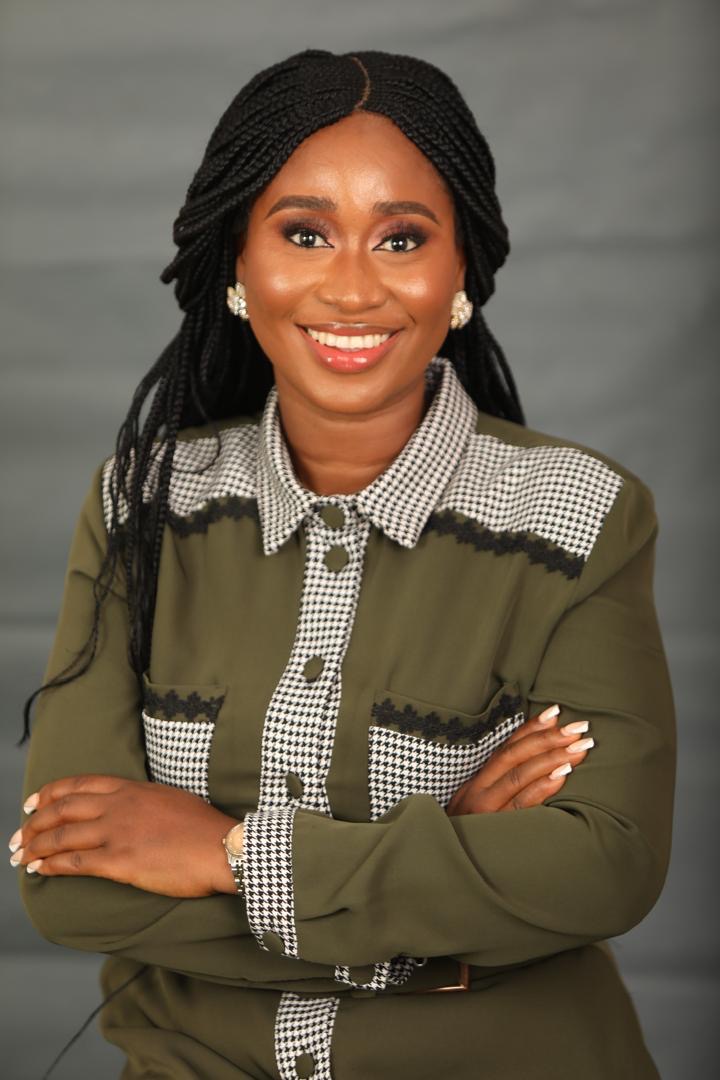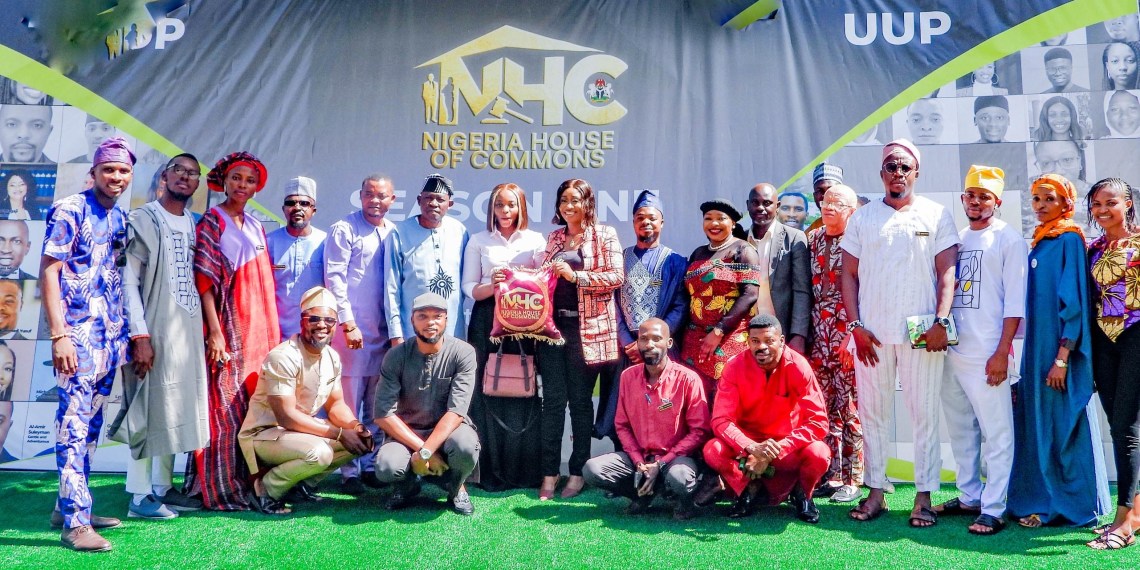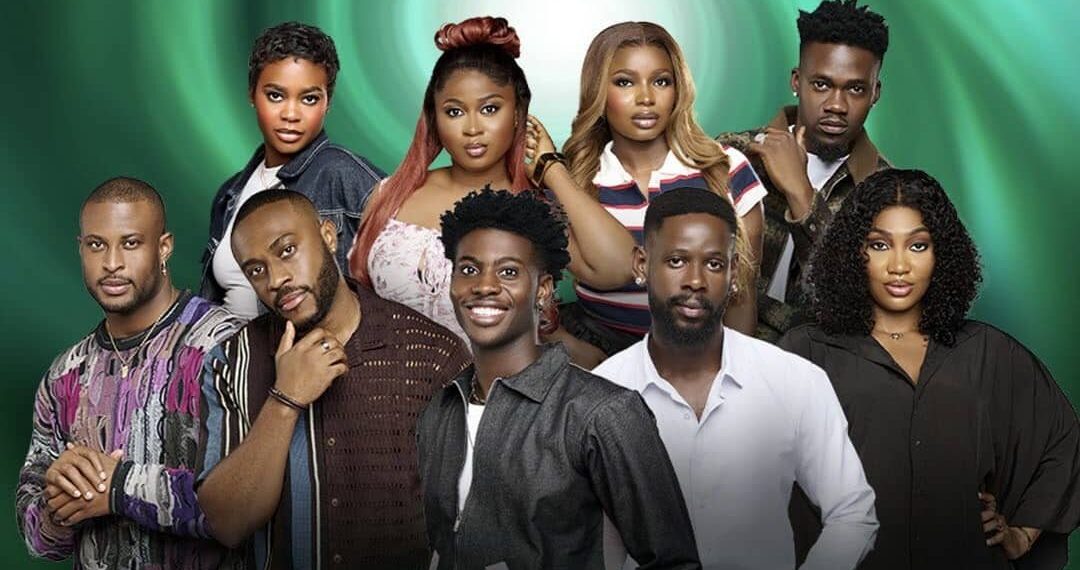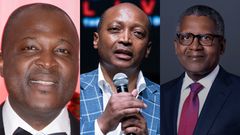Nigeria’s evolving political landscape is taking a bold step toward inclusion with the relaunch of the Africana League’s “Nigeria House of Commons” reality TV show. This refreshed phase, building on the momentum of its July YouTube pilot, aims to empower young people and persons with disabilities (PWDs) to take center stage in political debates and policy discourse.
At a recent press conference in Lagos, organisers outlined an ambitious vision for the programme’s future. “We want to create a platform where Nigeria’s diversity is seen, heard, and valued,” announced Glory Ukwenga, founder and executive director of the Africana League. The new format will feature broader and more representative casting, reflecting the urgent need for youth and PWD voices in policy and governance across the country.
According to Ukwenga, the upcoming episodes will enable contestants to simulate authentic parliamentary debates, propose innovative motions, and present ideas that highlight the nation’s wide array of perspectives—mirroring the deep cultural and regional diversity found across Nigeria and the wider West African region.

“This show gives Nigerian youths an opportunity to step into the shoes of lawmakers and debate the most pressing policy challenges facing our nation,” Ukwenga stated. She emphasised that the simulation experience is not just a contest—it’s a pivotal training ground for leadership, public speaking, and consensus-building.
Youth and Disability Inclusion: A New Vision for Governance
Youth and persons with disabilities remain notably underrepresented in Nigerian politics, a reality that the show’s producers hope to challenge. Ukwenga cited data showing that despite the passage of the “Not Too Young to Run” bill in 2018, which aimed to make it easier for young Nigerians to contest political office, tangible progress has been limited. As of 2023, there are reportedly no officially recognised youth senators, and youth make up only about 3.9% of the House of Representatives.
Participants in the programme will represent every state, including the Federal Capital Territory. “Young leaders across our federation step up to propose motions, debate crucial issues, and motivate their peers. Through their demonstrations, we hope to inspire a nationwide movement for greater inclusion,” Ukwenga noted.
She added, “This is a simulated Nigeria where voices are amplified not by wealth or influence, but by the power of ideas. Our doors are open to young men and women and to persons with disabilities, whose intelligence and tenacity have too often been ignored in the national dialogue.”
Organisers believe that amplifying these marginalised voices could spark a cultural shift: “Imagine the impact if 100 million Nigerians tune in, 5 million get directly involved, and every contestant builds an active following. That energy would send a clear message that Nigerians are ready for substantial change,” Ukwenga stated confidently.
“Nigeria House of Commons is a call to action—a chance for us all to co-author a new story of youth in governance. With enough support, this could become Africa’s premier civic engagement forum—shaping future governors, parliamentarians, and ministers, and even presidents.”
She urged for continued public backing, warning against underestimating the potential of the initiative to serve as both a learning platform and a launchpad for lasting change.
Challenges in Implementation: Lessons from ‘Not Too Young to Run’
Despite passing landmark youth-centric laws, implementation lags. “Young Nigerians, women, and people with disabilities are still missing from the halls of power,” Ukwenga explained, “which demonstrates just how far we still have to go as a country.”
She highlighted that the Not Too Young to Run Act was meant to break barriers to entry for youthful aspirants, but significant obstacles remain. “While new laws are on the books, the culture in our institutions remains sluggish,” she remarked. “Many young, capable candidates struggle to gain traction or are excluded from party structures altogether.”
One innovative aspect of the show is its use of party simulations—with fictional groups such as the Unity, Diversity Party (UDP) and the Unity by Informative Party (UUP)—allowing participants to grapple with how political ideologies should actually guide policy decisions.
Building Genuine Inclusion for PWDs
Mary Victor, a legal and HR specialist as well as a humanitarian, shared her perspective as a representative of the disability community on the programme. “Laws exist to protect persons with disabilities, but implementation remains inadequate,” Victor argued.
Speaking specifically about the five-year provision given to Nigerian institutions to become accessible following the January 2024 disability law, Victor was frank: “Most government and public buildings remain inaccessible, including the Presidential Villa—Aso Rock.”
She added, “The quota mandating that 5% of jobs in public institutions should go to persons with disabilities is rarely met, and in cases where it is, employment is too often symbolic rather than substantial.”
Victor stressed that tokenistic gestures—such as food donations during awareness days—are no substitute for systemic reforms. “This is not a matter of charity. Disability is a human rights issue. Without genuine accessibility and active engagement in policymaking, Nigeria stands to lose, just as the international community reportedly loses $6.3 trillion annually by excluding persons with disabilities,” she explained, referencing a recent U.S. report.
For meaningful progress, Victor believes Nigeria must first collect accurate data on disabilities, then commit to proactive, not reactive, enforcement of its existing laws. “Waiting for enforcement actions is not good enough. We need to anticipate needs and build inclusive systems from the ground up,” she said.
Wider Impact and Global Relevance
The significance of initiatives like the Nigeria House of Commons extends beyond Nigerian borders. Across West Africa, there is growing recognition of the need to bring fresh voices and often-overlooked communities into the decision-making process. Countries like Ghana and Senegal are beginning to implement their own versions of inclusive governance, but challenges of entrenched structures and cultural attitudes persist throughout the region.
On a global scale, UN reports repeatedly highlight that societies benefit socially and economically from the active participation of youth and persons with disabilities. Countries that have improved representation policies often experience more equitable social outcomes, enhanced innovation, and sustainable civic engagement.
Nigerian Reactions: A Hopeful, Cautiously Optimistic Public
The conversation about inclusion is resonating with young Nigerians. According to Lagos-based governance analyst Ibrahim Odumakin, “Youths see themselves in these contestants. Even if they can’t directly participate yet, shows like this open their eyes to what’s possible and help to chip away at the barriers created by established interests.”
Meanwhile, disability activists continue to push for meaningful action rather than symbolic gestures—a sentiment echoed in campus debates, social media discussions, and civic forums nationwide. Local observers stress that, for the changes to last, TV programmes and public advocacy must be backed by action at all levels of society.
The Road Forward: Inspiration, Action, Accountability
The Africana League’s initiative comes at a time when many Nigerians feel frustrated with the slow pace of political reform. By offering a visible, engaging, and practical simulation of governance, the Nigeria House of Commons seeks to not only entertain but also empower a new generation of leaders who represent the full diversity of Nigeria—and potentially, of Africa as a whole.
As the show prepares for a wider launch and an anticipated surge in public engagement, questions remain about whether these efforts will translate into genuine power-sharing, policy impact, and societal change. Yet there is optimism that, if sustained and scaled, such inclusive civic projects could reshape public expectations and governmental priorities across the continent.
What are your thoughts on the changing face of representation in Nigerian politics? Can reality TV initiatives like the Nigeria House of Commons truly serve as catalysts for wider social change or do you think more needs to be done beyond the screen? Drop your comments below and let us know your perspective. For the latest on civic innovation, youth voices, and national developments, follow us for insightful updates.
Do you have a news tip, opinion, or inspirational story about civic engagement in your community? We want to hear from you! Share your experience or sell your exclusive story—email us at story@nowahalazone.com and let’s showcase your voice.
For general support or questions, reach out at support@nowahalazone.com.
Stay up-to-date on Nigerian politics, youth initiatives, and more—follow us on Facebook, X (Twitter), and Instagram! Let’s build a more inclusive Nigeria together.










